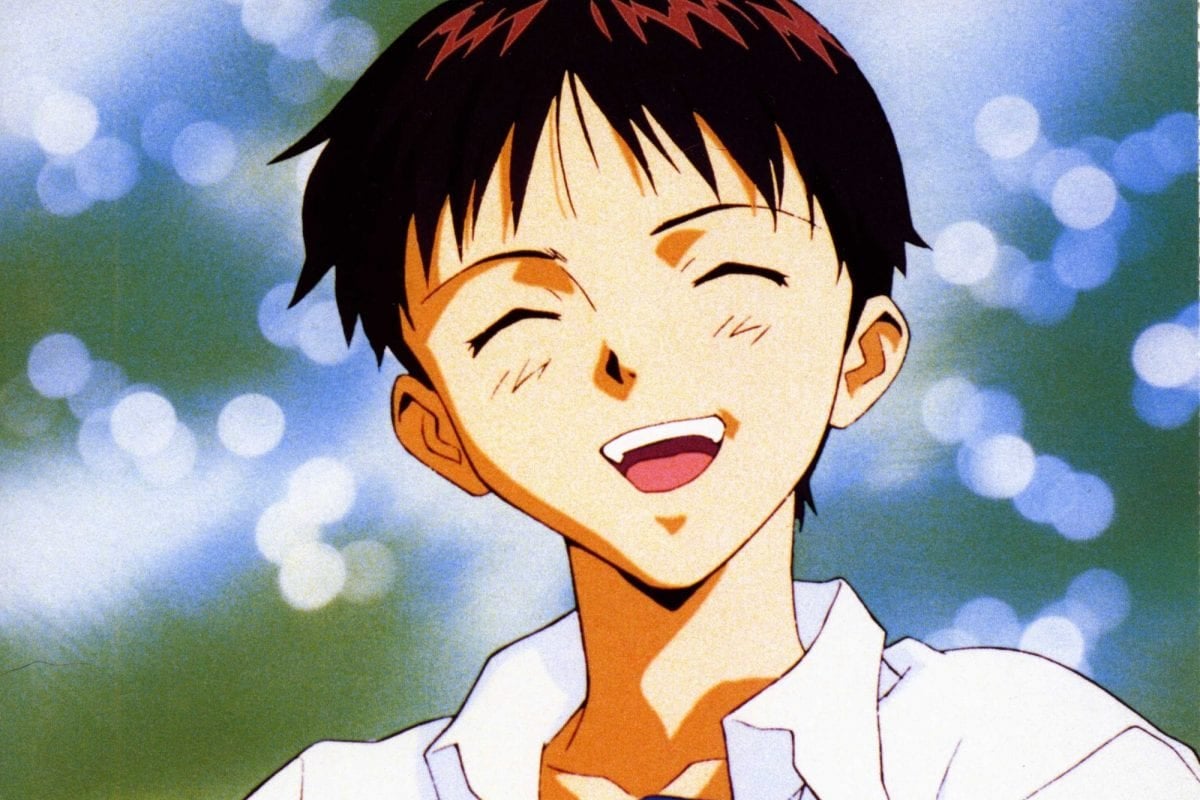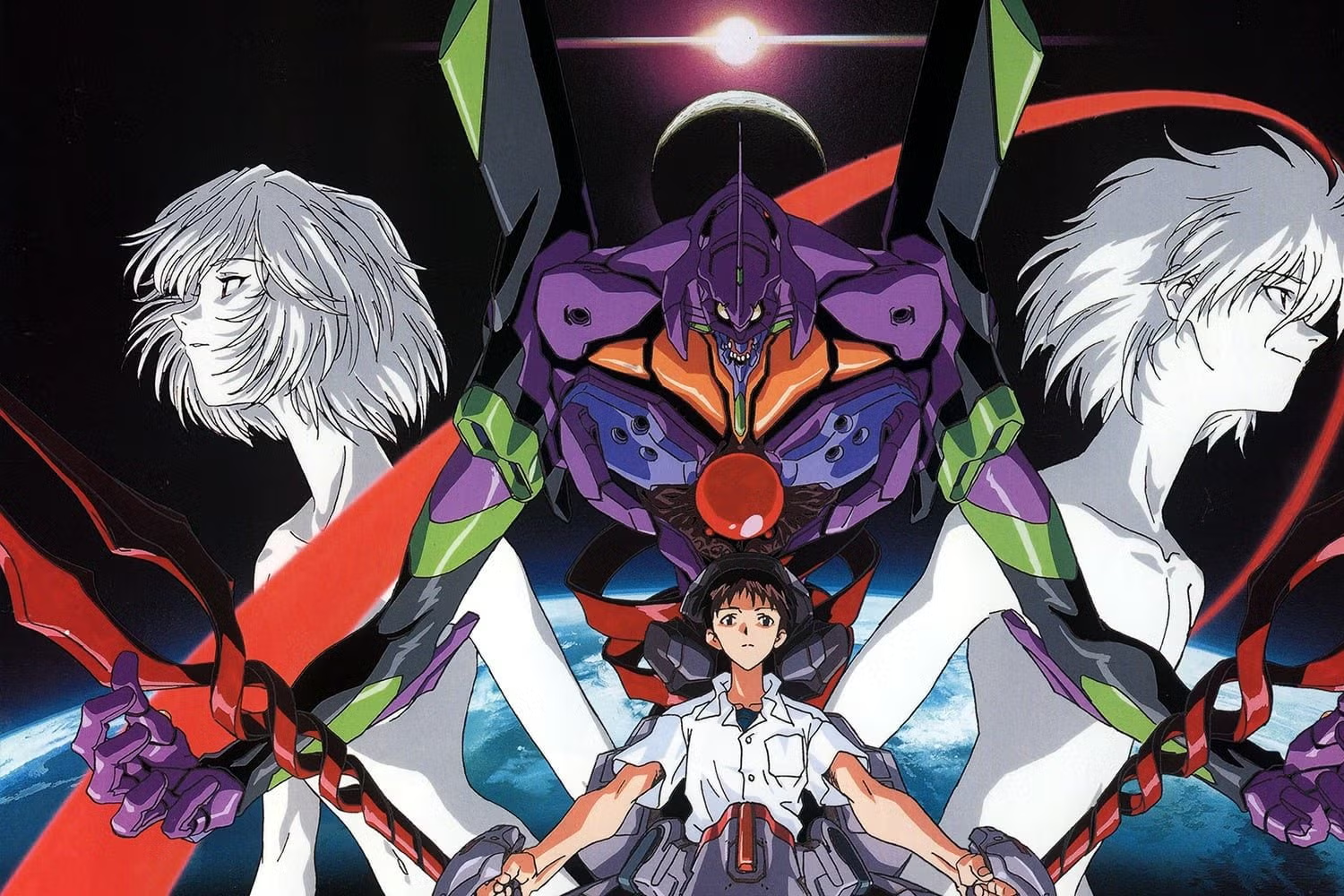Since Neon Genesis Evangelion debuted in 1995, the anime series has become such a phenomenon that even its Wikipedia page describes it as a “cultural icon.” But if you’re not an anime fan, the title may mean absolutely nothing to you (for instance, when the opening credits of The Nagano Tapes went viral, you may not have understood what made the clip so special). Today, however, the final film in the franchise, Evangelion: 3.0+1.0 Thrice Upon a Time, hits streaming on Amazon Prime after a nine-year wait. So there’s no better time than now to catch up with one of the most famous anime series of all time, especially with all 26 original episodes streaming on Netflix.
If you need a little more context as to what you’re getting yourself into with this beloved, notoriously offbeat and unconventional show, we’re here to hold your hand and walk you through it as gently as possible.
OK, so what is Neon Genesis Evangelion?
It’s a coming of age/mecha/psychological thriller anime about a group of teenagers who are recruited to pilot special robots, called Evangelions, Evas for short, to battle mysterious monsters known as Angels.
Are the Angels actually, like, biblical angels?
They are heavily influenced by the Bible, but they’re not really biblical.
Is this set in the future?
Well, yes—the future in relation to when it was made. The first episode aired in Japan on October 4, 1995, and the series itself is set in 2015.
Is it post-apocalyptic?
The events of the series take place 15 years after a global cataclysm known as the Second Impact, the nature of which is revealed over the course of the series. But if by “post-apocalyptic” you mean “takes place in a wasteland,” then no.
What does “Evangelion” even mean?
It comes from the Greek word for “good news,” which, as I understand it, refers to the gospel in Christianity. The series is chock full of religious symbolism, which makes the decision to use the name a little clearer, but it mostly just sounds cool. And FYI, it’s a hard “g.”
You said this series is about robots, but I keep hearing people say it’s about depression. What’s up with that?
I was getting to that! What makes the series truly compelling is creator Hideaki Anno’s focus on the characters’ psyches and what makes them all tick. The main character, a boy named Shinji, struggles with his sense of self-worth, and sometimes that means he’s reluctant to get in his robot. For context: His dad is an uncaring asshole and is also the main guy responsible for building the Evas. As it happens, all of the other Eva pilots are dealing with similarly rough private lives.

So it started as a TV series, and now there’s this new movie?
Unfortunately for completists, it’s a little more complicated than that. The series aired first, but had a rocky production period, as scheduling issues and insufficient staffing made it difficult to deliver. The final two episodes of the series also—or, as a result of these issues, it’s not entirely clear—mark a drastic shift from the rest of the series. They’re much more experimental in style and deal more with the characters’ psychological states than what’s happening in the story up to that point.
Then there are five Evangelion movies, all of which vary in terms of how much they actually consist of new material. Here’s the basic gist of each, with the films listed in order of when they came out:
· Neon Genesis Evangelion: Death & Rebirth (1997): The “Death” part of this movie is a recap of what happens in the first 24 episodes of the series, as Death & Rebirth and its follow-up, The End of Evangelion, were announced after fans were dissatisfied with the series’ original finale. “Rebirth,” by contrast, is mostly new material, taking place during the events of the series’ finale, and forms the beginning of The End of Evangelion.
· The End of Evangelion (1997): Picking up at the end of the series’ 24th episode, this film offers up a completely new ending, and is much more action-oriented than the show’s final two episodes.
· Evangelion: 1.0 You Are (Not) Alone (2007): This is the first film in the Rebuild of Evangelion series, which starts from the beginning of the anime to re-tell the entire story of Neon Genesis Evangelion with some significant changes. Of all four films in the Rebuild series, this first film follows closest to the original show.
· Evangelion: 2.0 You Can (Not) Advance (2009): This is where the story of Rebuild and the original anime start to diverge more significantly, including the introduction of an entirely new character.
· Evangelion: 3.0 You Can (Not) Redo (2012): This is the most divergent of the Rebuild series, and occurs after a significant jump in time.
· Evangelion: 3.0+1.0 Thrice Upon a Time (2021): This is the final film in the Rebuild series, and, as of now, the final installment in the Neon Genesis Evangelion franchise.
Are you telling me I have to watch all of these to complete the series?
Not if you don’t want to! The Rebuild movies are considered independent of the show and can be watched without watching the original Neon Genesis Evangelion. If you just want to be on the hype train, watching all of Rebuild might be the path for you, since that will provide easy landing into the just-released Thrice Upon a Time. But the old series is still a huge part of pop culture, and well worth catching. If there’s anything to skip, it’s probably Death & Rebirth and The End of Evangelion. Sorry to them! (Note that while the series, Death & Rebirth, and The End of Evangelion are streaming on Netflix, all four Rebuild movies are only available on Amazon.)
OK, I still have to ask: Why is this series such a big deal?
For one, the series is credited with sparking the rebirth of the anime industry in the mid-1990s. It has also been incredibly influential on many anime series that followed (like the similarly acclaimed Gurren Lagann and FLCL) and animation as a whole, thanks to its subversive use of mech-show tropes and psychological themes. (Even Robin Williams was known to be a huge fan.) The series also birthed a million memes, and it’s somehow remained popular, as a titan in the world of anime and a cult hit in broader pop culture, for a quarter-century—hence the fact that the final Rebirth is coming out in 2021.
Correction, Aug. 25, 2021: This article originally misstated how Evangelion is pronounced. It’s with a hard g, not a soft g.
Correction, Aug. 13, 2021: The original version of this article stated that the first three Rebuild movies are not available to stream. They are now streaming on Amazon Prime.
